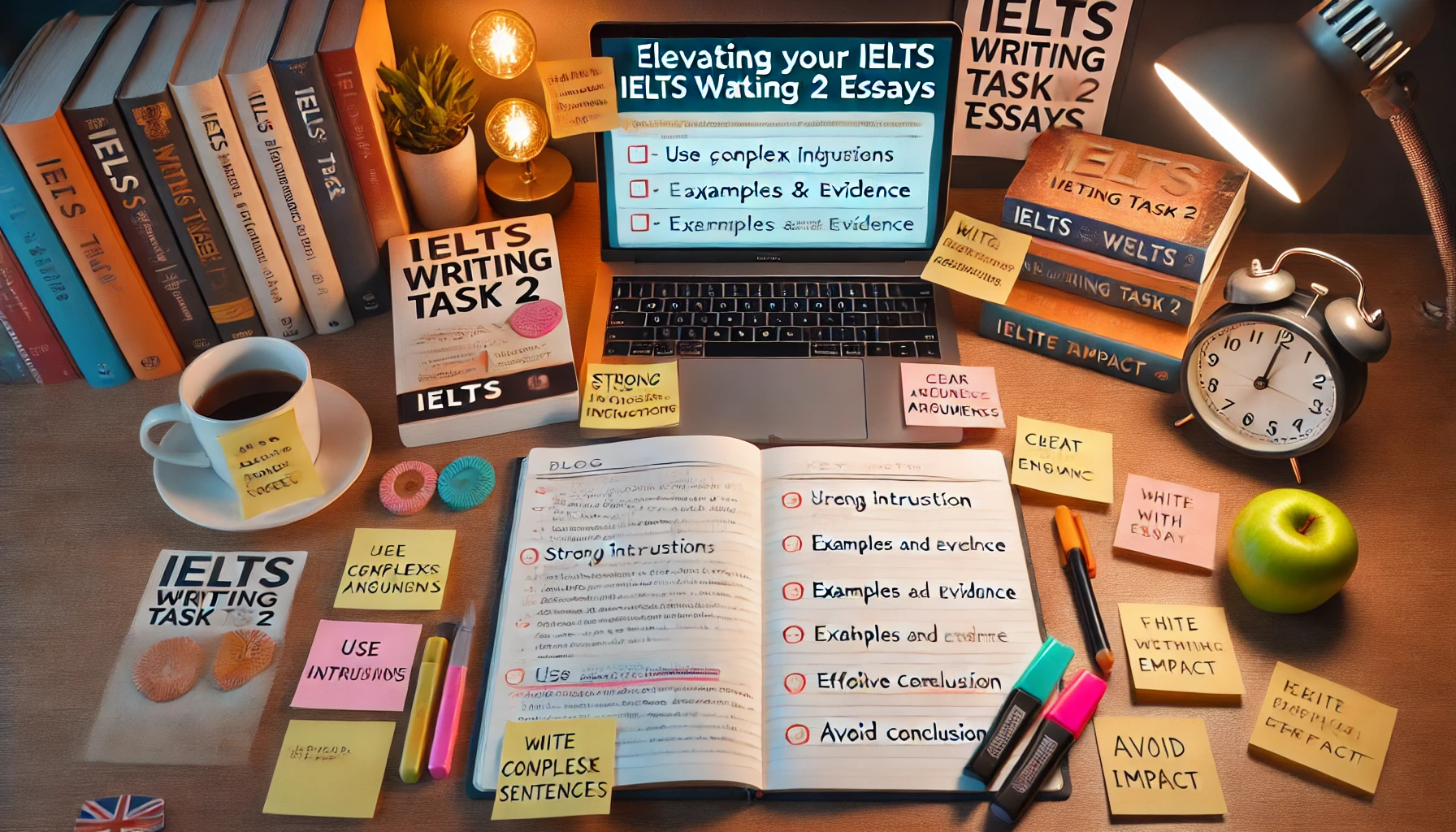Elevating Your IELTS Writing Task 2 Essays: Key Strategies and Tips
If you’re preparing for the IELTS exam, then you already know that Writing Task 2 is a major part of the test. In this task, you’re required to write a coherent, well-structured essay in response to a prompt—often an opinion or discussion-based question. Because this essay can significantly influence your overall band score, it’s essential to give it the time and attention it deserves. Below are some practical tips and strategies to help you elevate your IELTS Writing Task 2 essays and achieve the highest score possible.
1. Understand the Task Requirements
Before you begin writing, make sure you thoroughly understand what the essay prompt is asking for. Is it asking for your opinion, a discussion of both sides of an argument, or solutions to a problem? Misinterpreting the prompt is a common mistake and can drastically affect your score. Spend a minute or two reading the question carefully and identifying the task words. By clarifying the question’s focus early on, you can tailor your writing to precisely address the requirements.
2. Brainstorm and Plan Efficiently
Though you have limited time, spending a few minutes on brainstorming and outlining can make the rest of your writing process smoother. Jot down key points and supporting examples you’d like to include in your essay. A clear plan will prevent you from going off-topic and keep you organized. Remember: A well-structured argument is much easier to follow (and easier for examiners to award a high score) than a scattered, unplanned essay.
3. Structure Your Essay Clearly
A strong structure is the backbone of a high-scoring IELTS essay. Typically, a four-paragraph or five-paragraph format works well:
- Introduction – Present the topic, indicate your position or main argument, and briefly mention the points you will discuss.
- Body Paragraph 1 – Focus on your first main point or argument. Use relevant examples or data to back up your ideas.
- Body Paragraph 2 – Develop your second main point, again supporting it with clear examples or evidence.
- (Optional Body Paragraph 3) – If necessary, explore another perspective or additional supporting point.
- Conclusion – Summarize your arguments and restate your opinion (if required). Avoid introducing new points.
Maintaining a clear structure will not only help you organize your thoughts but also make it easier for the examiner to follow your logic.
4. Use Topic-Specific Vocabulary
To achieve a higher band score for Lexical Resource, be precise and intentional with your word choices. Incorporate topic-related vocabulary that demonstrates your range. For instance, if your essay is about environmental conservation, you might discuss terms like “sustainability,” “renewable resources,” or “carbon footprint.” Using a variety of synonyms and collocations not only enriches your content but also showcases your ability to handle the English language effectively.
5. Demonstrate Complex Grammar Accurately
Grammar accounts for 25% of your Writing Task 2 score. Elevate your writing by combining simple and complex sentence structures accurately. Use conditionals, passive voice (when suitable), and relative clauses (such as “who,” “which,” and “that”) to demonstrate your range. However, be cautious about forcing overly complicated sentences that might lead to errors. Balance complexity with clarity, and proofread to minimize mistakes.
6. Develop Strong Cohesion and Coherence
Your essay should flow smoothly, with clear connections between sentences and paragraphs. Use linking words and cohesive devices—such as “furthermore,” “however,” and “for instance”—to guide the reader through your arguments. Paragraphs should transition naturally without abrupt jumps in logic. This level of readability and organization is a hallmark of a polished, high-scoring essay.
7. Provide Relevant, Specific Examples
Vague ideas make for a weak argument. Whenever possible, back up your points with relevant, real-world examples. This might include statistics, historical references, or personal experiences. Even hypothetical scenarios can be effective, as long as they illustrate your point clearly. Specificity shows depth of thought and can bolster the validity of your argument.
8. Practice Under Realistic Conditions
Finally, practice makes perfect. Familiarize yourself with the time constraints by simulating the test environment. Write essays on a variety of topics to become comfortable thinking and planning quickly. After each practice, evaluate your writing for clarity, grammatical errors, and vocabulary usage. Self-assessment—or feedback from a tutor—can help you identify weak spots and track improvement over time.
Final Thoughts
Scoring well in IELTS Writing Task 2 is about combining clarity of thought, precision in language, and strength of argument. By fully understanding the prompt, planning effectively, and showcasing a range of vocabulary and grammatical structures, you’ll be well on your way to boosting your band score. Stay consistent with your practice, seek feedback whenever possible, and remember that every essay you write is an opportunity to refine your technique and develop your individual writing style. Good luck on your IELTS journey!
Check out Mastering the IELTS: Your Comprehensive Guide to the International English Language Testing System for a deeper look at the test structure, sections, and strategies.

